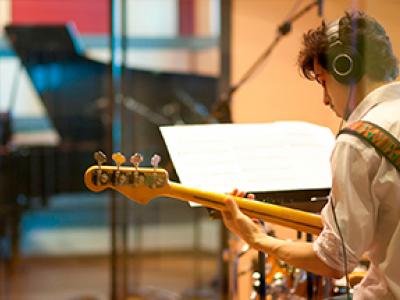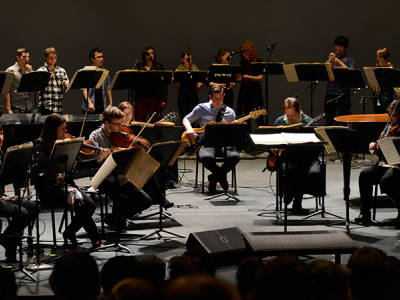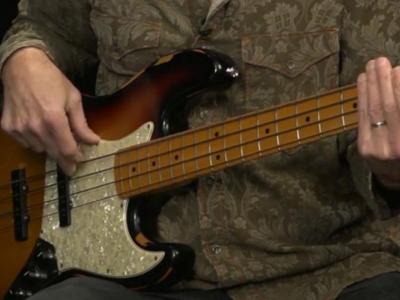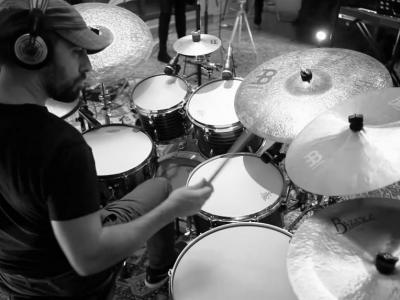What does a Touring Musician do?
Some say that life on tour is nothing but truck-stop burgers and dirty laundry. Others say it's the nonstop rush of adoring fans and the open road. These stereotypes get one thing right: life on tour is made up of a mix of highs and lows that nearly all musicians—orchestra members, singer-songwriters, recording artists, and side players alike—experience at some point in their careers. A tour may be as short as a week or as long as a year, with occasional nights off—or, on truly lengthy tours, longer periods for recharging at home—built into the itinerary.
Musicians who are flexible, free-spirited, and resilient will find it easier to navigate the stresses of life on the road than those who are attached to a prescribed schedule or lifestyle.
A typical day for a touring musician begins with a drive from one city to another, followed by load-in and sound check at the venue. In the afternoon, there might be a promotional visit to a local radio station or record store. Once this wraps up, and before the pre-show phase begins, touring musicians often try to squeeze in some time for exercising, emailing, sightseeing, pleasure reading, or simply catching up on rest. In the early evening, it's time to gather back at the venue. The pre-show might involve vocal warm-ups, makeup, costuming, writing a set list, or running through some last-minute changes. After the show, the musicians usually spend time at the merch table, meeting and greeting fans. Then it's time to pack up. Unless they are on a well-funded tour with roadies to do the heavy lifting, musicians pack up and load out their own instruments and equipment. Contrary to popular myth, hard partying is not required. In fact, most musicians hightail it back to the hotel or motel to get a decent night's rest before waking up and getting ready for the next show.
At a Glance
Almost all performing musicians will go on tour at some point in their careers, but it's a smaller number that make it their professional specialty. Touring musicians have diverse backgrounds; some get their first touring experience as concert techs for established acts, others as members of original bands, orchestras, or pit orchestras. Beginning touring musicians might audition with music directors and managers to earn spots on tours, while more experienced touring musicians might be offered the job based on reputation, word of mouth, or a previous experience playing together on a different tour.
Skilled and successful touring musicians might join bands as full-time members, transition into another aspect of the touring business such as tour management or music direction, or leave the touring lifestyle to establish themselves as session musicians, television band members, or music instructors.
Some musicians tour with orchestras, bands, or ensembles they're already a part of, in which case they either hire an agent to book their tours or do the work themselves—identifying the regions where they want to play, researching and making contact with venue managers and talent buyers, and sending out links to their music in the hope of booking a show.
Professional touring musicians, on the other hand, are usually auditioned and hired by a band or artist's music director, or in some cases their manager. First-time touring musicians are unlikely to be hired without significant prior touring experience and proven performance abilities. It's all word of mouth, so networking abilities are important.
- Deep instrumental proficiency
- Experience with touring
- Knowledge of and proficiency in many musical styles
- Live performance abilities (stage presence)
- Strong interpersonal skills
- Networking
- Flexibility
Musicians who are flexible, free-spirited, and resilient thrive on tour. Communication skills are also vital, as the stress of touring can and often does trigger interpersonal conflicts between bandmates. Additionally, road life is notorious for offering unhealthy temptations; a little bit of discipline, maturity, and professionalism can go a long way. In terms of performance, playing for a new crowd each night requires immense flexibility as a performer, and acts for less experienced players as a practical crash course in connecting with an audience.
There's a reason musicians still tour when so much else about the music industry has changed. Touring offers the opportunity for musicians to connect with their listeners on a personal level, in the flesh. And for those who are thirsty for new experiences, going on tour promises a wealth of them; every day on tour is different and full of surprises. Still, whether traveling on a shoestring or in relative comfort, life on tour presents certain challenges: long stretches away from loved ones; sleeping in a different bed every night; trying to eat well and stay fit while dealing with boredom and lengthy drives; acclimating to transience and then readjusting to life at home. All of it can wear down even the hardiest musicians, which is why self-care is especially vital for touring musicians.












